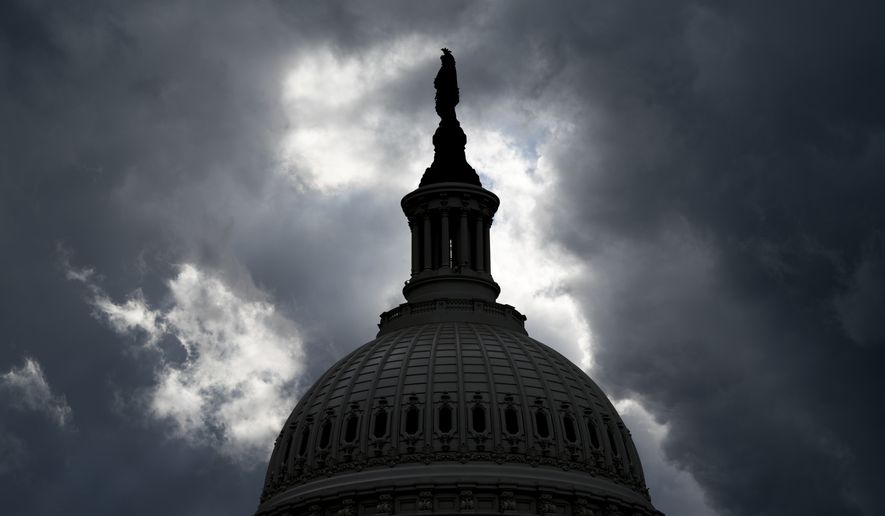
Congress is already signaling it may miss this year’s deadline for getting all of its spending bills done, setting up the possibility of a shutdown showdown at the height of the midterm election campaign.
Despite having a bipartisan commitment to do things right this year, a topline spending number in hand and a relatively early start to the process, the lawmakers in charge of the appropriations process said they’re likely to go into overtime.
Rep. Tom Cole, Oklahoma Republican and chairman of a House subcommittee on health spending, said he’d be surprised if lawmakers manage to avoid passing another stopgap bill to get them past September, saying things always get more complicated in an election year.
“There’s less time, there’s more risk, and so it’s easier to punt sometimes,” he said. “But it’d be a good thing if we could get these things out, and we could get the majority of bills done.”
House lawmakers said they got all 12 annual spending bills done last year and should be able to do so again this year.
But the holdup has been the Senate[1], where Democrats maintain the ability to filibuster, and have flexed those powers in recent years to gum up the works on spending bills, figuring they had more leverage that way.
Senate[2] Appropriations Chairman Richard Shelby, Vice Chairman Patrick Leahy, Majority Leader Mitch McConnell and Minority Leader Charles E. Schumer all say they’re serious about avoiding something similar this fall.
“I think what’s important here is to move the Senate[3] forward on appropriations, and we Democrats have every intention of doing that and cooperating,” Mr. Schumer said Tuesday.
Mr. Shelby said Tuesday it should be seen as “progress” if lawmakers can move half of them by the next deadline at the end of September....
“I never said I thought all of them would be done by Sept. 30,” he said. “If Sept. 30 we have four, five, six bills — that’s progress. And the others in the pipeline.”Even that would be an improvement over recent years, when Congress has generally failed to pass any of the dozen bills on time, instead resorting to a cycle of shutdown showdowns, stopgap “continuing resolutions” to keep the government open, and then a massive “omnibus” bill months after the deadline that wraps all of the government’s spending into one measure.President Trump signed such an omnibus in March, approving a nearly $150 billion spending increase, but vowed never to do so again.Mr. McConnell is aiming to avoid an omnibus this year. He’s signaled he may keep senators in town for part of the scheduled August recess in order to move the spending process along and clear through a backlog of presidential nominations.Having an overall spending number already in hand should make the process easier.But policy fights over immigration and abortion can complicate matters. Last year, Senate[4] Democrats fought Republicans to remove
